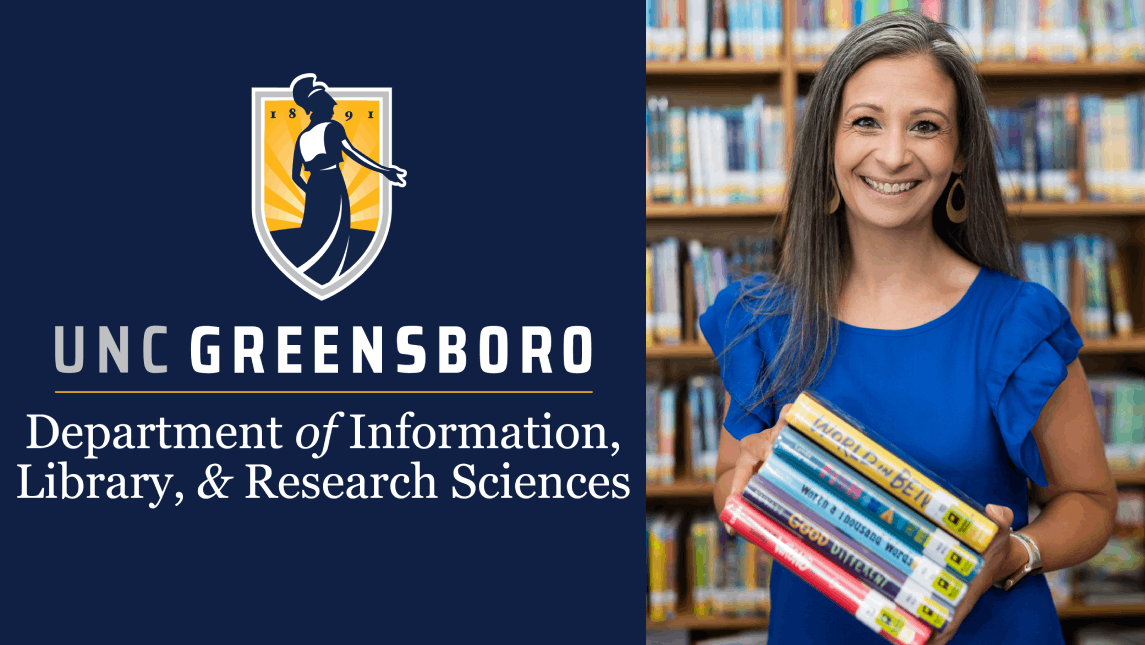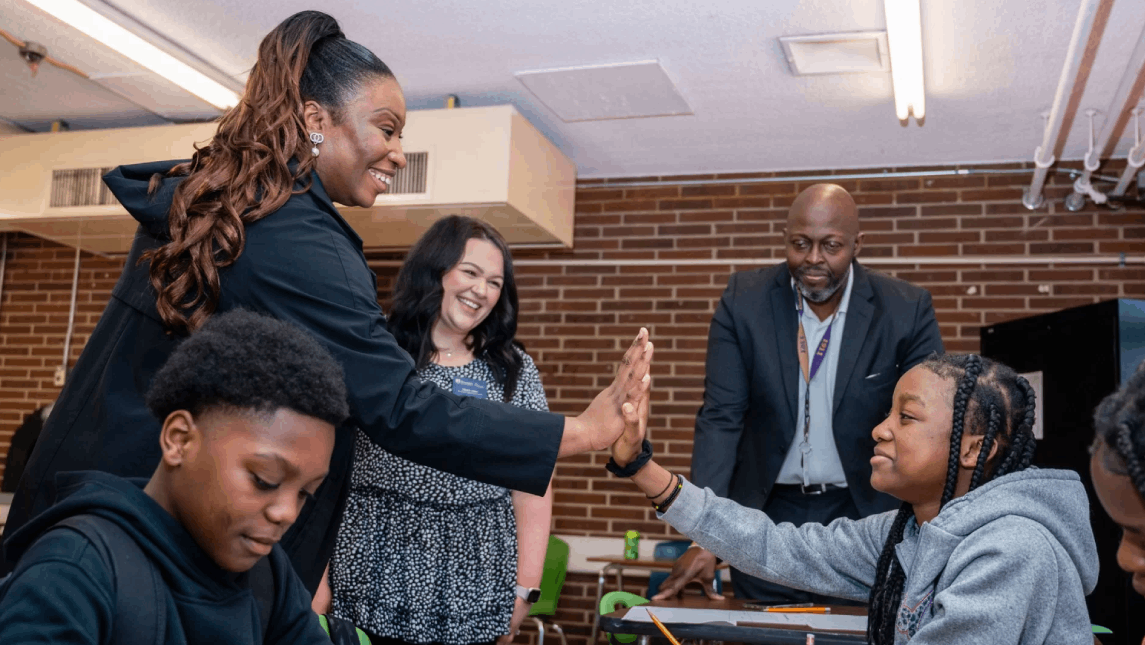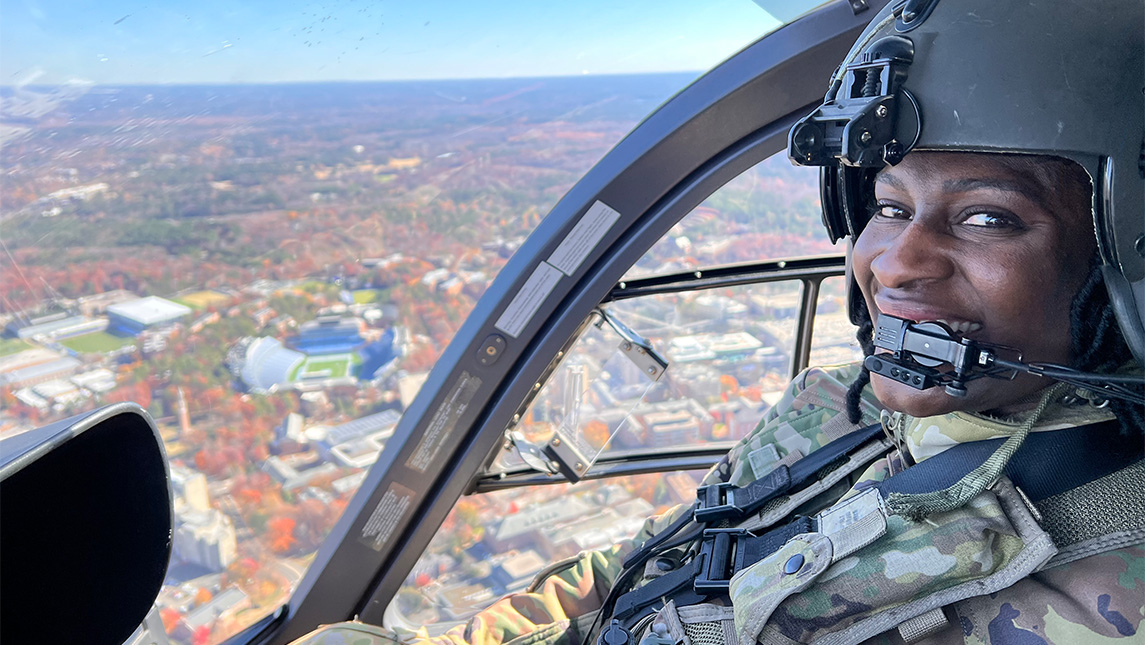What do a conflict resolution floor mat, a college search board game, and nature-based mindfulness meditations for college students have in common? All are innovations designed by UNC Greensboro School of Education (SOE) students who participated in Impact Through Innovation Kickbox (ITI) this spring. ITI seeks to make SOE faculty and students change agents by promoting inventive solutions to the practical challenges faced by educational institutions, the individuals they serve, and the organizations with which they partner.
 The student innovation branch of this initiative, ITI Kickbox, is an innovation toolkit that was designed by Adobe to foster innovation among its employees and is now available to anyone. When an SOE faculty member elects to include a Kickbox project in a course, their students learn to innovate. Kickboxes prompts students to practice innovative thinking, which they can then apply in many future pursuits, transforming not just themselves but also the organizations they serve. ITI Kickbox just competed its second year in 2018-2019, including 30 graduate student projects across three SOE departments: Counseling and Educational Development (CED), Educational Leadership and Cultural Foundations (ELC), and Library and Information Studies (LIS).
The student innovation branch of this initiative, ITI Kickbox, is an innovation toolkit that was designed by Adobe to foster innovation among its employees and is now available to anyone. When an SOE faculty member elects to include a Kickbox project in a course, their students learn to innovate. Kickboxes prompts students to practice innovative thinking, which they can then apply in many future pursuits, transforming not just themselves but also the organizations they serve. ITI Kickbox just competed its second year in 2018-2019, including 30 graduate student projects across three SOE departments: Counseling and Educational Development (CED), Educational Leadership and Cultural Foundations (ELC), and Library and Information Studies (LIS).
On May 7, 2019, Dr. Carrie Wachter Morris held a gathering for the Counseling and Educational Development master’s and doctoral students who participated in ITI Kickbox in Spring 2019. Students presented their innovations, including solutions for students and clients in K-12 schools, colleges, outpatient and hospital-based care settings. Dr. Scott Young, Director of Impact Through Innovation, guided the group in considering how particular projects might be further developed and marketed, and students offered each other helpful feedback toward product and process optimization. Three of the students’ projects are featured below.
Project 1
Many elementary school students experience disagreements with a peer, and these disagreements can cause classroom disruptions when students seek teacher assistance for conflict resolution. Enter ISCRM, the Interactive Student Conflict Resolution Mat, designed by CED doctoral student Ashley Devon Smith. This fold-out mat, placed at the back of a classroom, guides pairs of students through the conflict resolution process. Students literally and figuratively walk toward each other and collaborate to come to a resolution, giving them some autonomy in solving their own problems.
According to Ashley, “Students self-refer to use the mat and speak with the school counselor first to express their current problem. Students are prompted to take a deep breath, think about the problem, talk about how they feel, express what they want, collaborate on a solution, try it out, and if it does not work, try again.” The mat has been piloted with 11 students, and 70% said it helped them think through conflict resolution. This portable, laminated, 9 ft plastic floor mat, which displays calming colors (purple, green, and blue), could potentially be sold on Teachers Pay Teachers and might be a great addition to the sensory hallway at the Moss Street Partnership School.
Project 2
At the high school level, students often find it challenging to decide where to apply for college. CED master’s student Jeannine Harrell designed Degree Pursuit: College Edition, a board game that prompts students to consider the various factors that contribute to a college’s unique identity, as well as features typical of most colleges, including public or private status, scholarships, majors, transcripts, and fun facts. As students learn about common features and vocabulary, they develop confidence in their ability to navigate the college application process.
At the conclusion of the game, students are encouraged to write down their emerging list of preferred colleges. Jeannine designed the game to include “information on all of the colleges in the Greensboro area, including all public schools, every HBCU, and a few private schools,” and it could be expanded in the future to include information about colleges in other parts of the country. Students can play the game with their teacher or school counselor. Paper materials are laminated for durability and easy cleaning. The game is an interactive, fun way to learn about applying to college and has great potential to be sold on a platform such as Teachers Pay Teachers.
Project 3
Many college students are so busy with their academic and extracurricular pursuits and future orientation that they are disconnected from the natural world, as well as from the present moment. CED doctoral student Patty Hickham created an innovation to help students at Guilford College practice mindfulness, grounded in connections to nature. Each light-weight piece of wood in her collection includes a laser-engraved QR code linked to a SoundCloud mindfulness meditation that is customized to a specific place on campus.
As Patty states, “Mindfulness and being in nature are reciprocal and fit together well.” Those who wish to implement this innovation should be aware of a college’s religious affiliation, if applicable, and any potential conflicts with embedded quotes from Buddhist masters. This innovation could potentially be replicated at many other institutions.
The SOE congratulates all ITI Kickbox student innovators and can’t wait to see what students create in 2019-2020!


